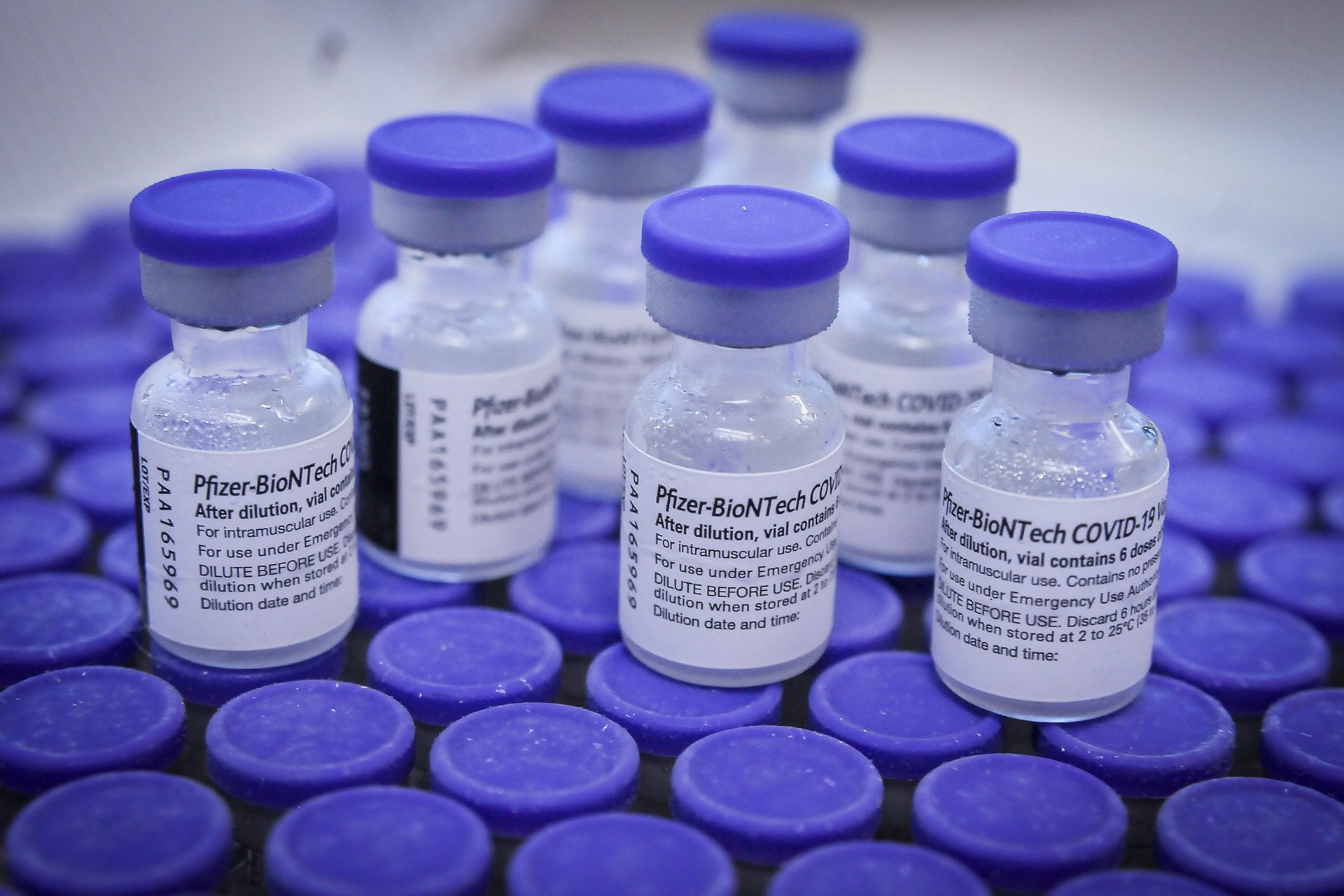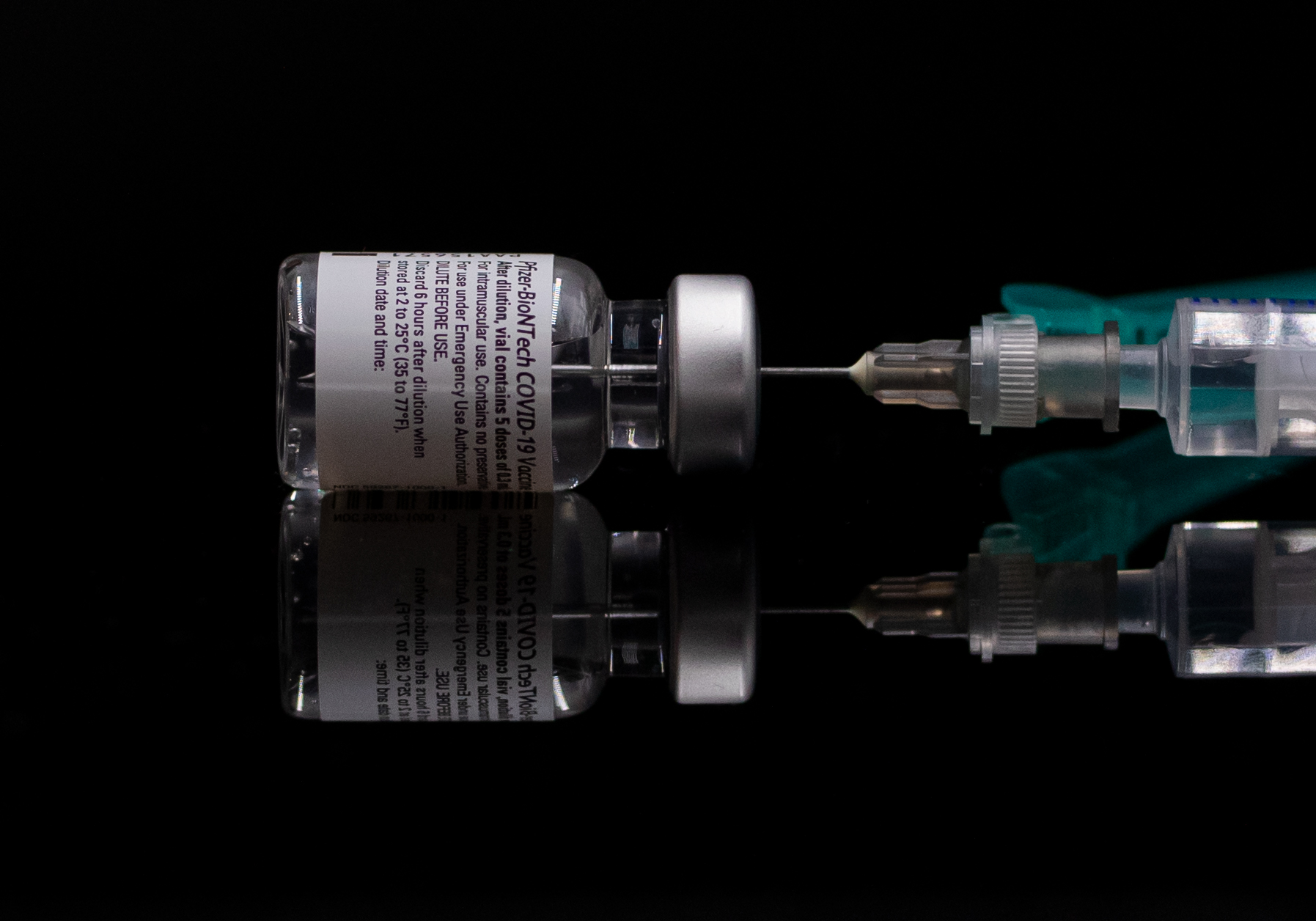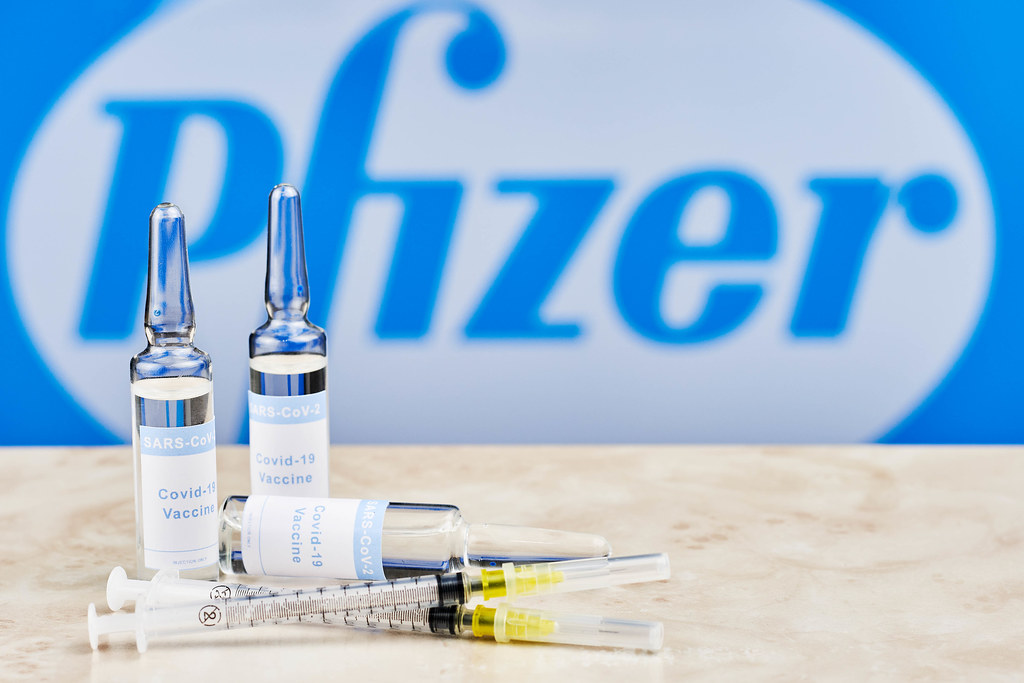The Pfizer–BioNTech COVID-19 vaccine (INN: tozinameran), sold under the brand name Comirnaty, is an mRNA-based COVID-19 vaccine developed by the German biotechnology company BioNTech and for its development collaborated with American company Pfizer, for support with clinical trials, logistics, and manufacturing.
Though the vaccine has been used under an emergency use authorization (EUA) since December 2020, a full approval allows more businesses, schools, and organizations to mandate vaccine use among employees and students, and offers legitimacy to a vaccine some people believe has been rushed through safety evaluations and protocols.

“While this and other vaccines have met the FDA’s rigorous, scientific standards for emergency use authorization, as the first FDA-approved COVID-19 vaccine, the public can be very confident that this vaccine meets the high standards for safety, effectiveness, and manufacturing quality the FDA requires of an approved product,” said Acting FDA Commissioner Janet Woodcock, MD, in a press statement.
“While millions of people have already safely received COVID-19 vaccines, we recognize that for some, the FDA approval of a vaccine may now instill additional confidence to get vaccinated. Today’s milestone puts us one step closer to altering the course of this pandemic in the U.S.”
Pfizer’s vaccine, which is administered in two doses 3 weeks apart, will still be under EUA for recipients ages 12 to 15, and for immunocompromised individuals who qualify for a third dose of the vaccine 28 days after their second dose.
The FDA said it reviewed hundreds of pages of clinical study results and drug trial documentation before the approval, including details of a trial of 20,000 vaccines and 20,000 placebo recipients ages 16 and older who did not have evidence of the COVID-19 virus infection within a week of receiving the second dose. The FDA said 12,000 vaccine recipients have been followed up for at least 6 months.

The first EUA, issued Dec. 11, for the Pfizer-BioNTech COVID-19 Vaccine for individuals 16 years of age and older was based on safety and effectiveness data from a randomized, controlled, blinded ongoing clinical trial of thousands of individuals.
To support the FDA’s approval decision on August 23, 2021, the FDA reviewed updated data from the clinical trial which supported the EUA and included a longer duration of follow-up in a larger clinical trial population.
Based on results from the clinical trial, the vaccine was 91% effective in preventing COVID-19 disease.
More than half of the clinical trial participants were followed for safety outcomes for at least four months after the second dose. Overall, approximately 12,000 recipients have been followed for at least 6 months.
The most commonly reported side effects by those clinical trial participants who received Comirnaty were pain, redness and swelling at the injection site, fatigue, headache, muscle or joint pain, chills, and fever. The vaccine is effective in preventing COVID-19 and potentially serious outcomes including hospitalization and death.
Additionally, the FDA conducted a rigorous evaluation of the post-authorization safety surveillance data pertaining to myocarditis and pericarditis following administration of the Pfizer-BioNTech COVID-19 Vaccine and has determined that the data demonstrate increased risks, particularly within the seven days following the second dose.
The observed risk is higher among males under 40 years of age compared to females and older males. The observed risk is highest in males 12 through 17 years of age. Available data from short-term follow-up suggest that most individuals have had resolution of symptoms. However, some individuals required intensive care support. Information is not yet available about potential long-term health outcomes. The Comirnaty Prescribing Information includes a warning about these risks.
According to cidrap.umn.edu; www.fda.gov. Source of photos: internet








